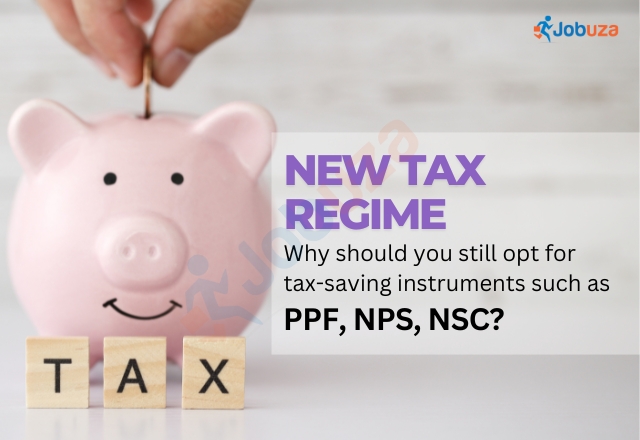Is It Time to Rethink Traditional Tax-Saving Investments Under the New Tax Regime?
The financial landscape for taxpayers has changed significantly with the introduction of the new tax regime in FY 2023-24. Since this new system is now the default, many investors are questioning whether traditional tax-saving instruments like the Public Provident Fund (PPF), National Savings Certificate (NSC), post office savings schemes, and the National Pension System (NPS) still hold relevance.
Are Traditional Tax-Saving Investments Losing Their Edge?
Under the new tax regime, major deductions available under Sections 80C, 80D, and 80CCD(1) have been removed. As a result, these previously essential tax-saving tools no longer provide the same level of incentive. But does this mean they have lost their value altogether?
Experts hold differing views. While the tax benefits may be gone, PPF, NSC, and NPS still play a crucial role in financial planning. Their relevance now depends more on factors like risk appetite, retirement planning, and portfolio diversification rather than just tax savings.
A Safe Haven for Conservative Investors
According to Swapnil Aggarwal, Director of VSRK Capital, traditional savings schemes like PPF and NSC have become less attractive from a tax-saving perspective. However, they still serve as excellent options for conservative investors seeking stability and guaranteed returns.
“The removal of tax rebates under sections 80C, 80D, and 80CCD(1) has reduced the charm of these schemes. However, they remain valuable for risk-averse investors looking for safe, steady growth. This shift presents an opportunity for investors to rethink their portfolios and consider high-growth alternatives like equity investments,” says Aggarwal.
He emphasizes that rather than focusing solely on tax savings, investors should adopt a diversified strategy that aligns with long-term financial goals. Equity-based investments, for example, offer higher returns and can contribute significantly to wealth creation over time.
More Than Just Tax Savings
Manoj Trivedi, Director of Strategy at Maxiom Wealth, believes these financial instruments still have a role to play. He highlights PPF’s high post-tax returns and safety, making it a solid choice for long-term financial planning, especially for retirement.
“PPF provides a secure, high post-tax return, making it a strong retirement planning tool. Similarly, life insurance remains essential for financial security. So, while tax benefits may be reduced, these instruments still serve important financial purposes,” says Trivedi.
Flexibility and Personalization in Investment Choices
Sandeep Agrawal, Director and Founder of Teamlease Regtech, sees a positive side to the new tax regime: greater investment flexibility. Without the obligation to invest in tax-saving schemes, individuals can now make choices based on their financial goals rather than just tax benefits.
“The new tax regime allows investors to focus on their personal financial objectives, risk tolerance, and liquidity needs. Previously, deductions under 80C, 80D, and 80CCD(1) directed investments toward tax-saving schemes. Now, investors can explore options with better returns and greater flexibility,” Agrawal explains.
This change encourages a more strategic approach to wealth generation, shifting the focus from tax-saving motives to overall financial growth.
Can the Old Tax Regime Still Be an Option?
For those still inclined towards tax-saving investments, the old tax regime remains an option. Sudhir Kaushik, Co-Founder & CEO of Taxspanner (a subsidiary of Zaggle), suggests that taxpayers looking for long-term wealth creation can still benefit from tax-saving investments like Equity-Linked Savings Schemes (ELSS), NPS, and Unit Linked Insurance Plans (ULIPs) under the old regime.
“With the right planning, taxpayers can use the old tax regime to maximize savings and build wealth. ELSS, NPS, and ULIPs continue to offer tax advantages and strong returns, making them viable options for those focused on tax-efficient investing,” says Kaushik.
The Bottom Line: A Shift in Investment Strategy
The transition to the new tax regime provides an opportunity for investors to reassess their financial strategies. While traditional tax-saving instruments may no longer be as attractive for tax benefits, they still hold value for long-term security and stability. Investors should focus on aligning their investments with their financial goals, risk tolerance, and liquidity needs rather than solely seeking tax advantages.
In today’s evolving financial landscape, diversification remains key. Whether choosing safe options like PPF and NSC or exploring high-growth opportunities like equities, a well-balanced approach can lead to sustained wealth creation over time.



